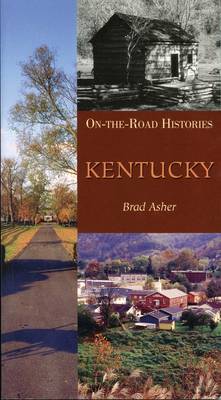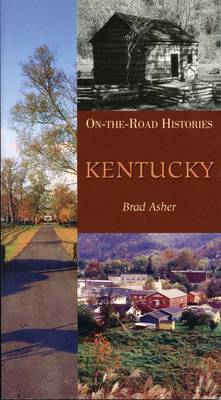
- Afhalen na 1 uur in een winkel met voorraad
- Gratis thuislevering in België vanaf € 30
- Ruim aanbod met 7 miljoen producten
- Afhalen na 1 uur in een winkel met voorraad
- Gratis thuislevering in België vanaf € 30
- Ruim aanbod met 7 miljoen producten
Zoeken
Omschrijving
Early settlers thought Kentucky a kind of paradise; Daniel Boone and others called it "a good poor man's country." Abraham Lincoln once famously said during the Civil War that while he hoped to have God on his side, he had to have Kentucky--a testament to this state's important position straddling the border between south and north (and, for that matter, east and midwest too). Borderlands beget abundant mythology, and Kentucky is no exception. Brad Asher, a scholar of Native American history, goes beyond the myths (or stereotypes) of the colonel in white who drinks mint juleps and breeds thoroughbreds and the barefoot hillbilly who knows caves and moonshine to explore the rich, complicated history of a state that has been home to figures as diverse as Robert Penn Warren, Muhammad Ali, and Wendell Berry. From the bluegrass of the heartland, to the hills and hollows of the east, to the flatlands of the west, and to vibrant Louisville, Asher shows a Kentucky beyond the world's largest cave and most famous race track.
Specificaties
Betrokkenen
- Auteur(s):
- Uitgeverij:
Inhoud
- Aantal bladzijden:
- 320
- Taal:
- Engels
- Reeks:
Eigenschappen
- Productcode (EAN):
- 9781566566384
- Verschijningsdatum:
- 1/08/2006
- Uitvoering:
- Paperback
- Formaat:
- Trade paperback (VS)
- Afmetingen:
- 127 mm x 230 mm
- Gewicht:
- 639 g

Alleen bij Standaard Boekhandel
+ 55 punten op je klantenkaart van Standaard Boekhandel
Beoordelingen
We publiceren alleen reviews die voldoen aan de voorwaarden voor reviews. Bekijk onze voorwaarden voor reviews.







